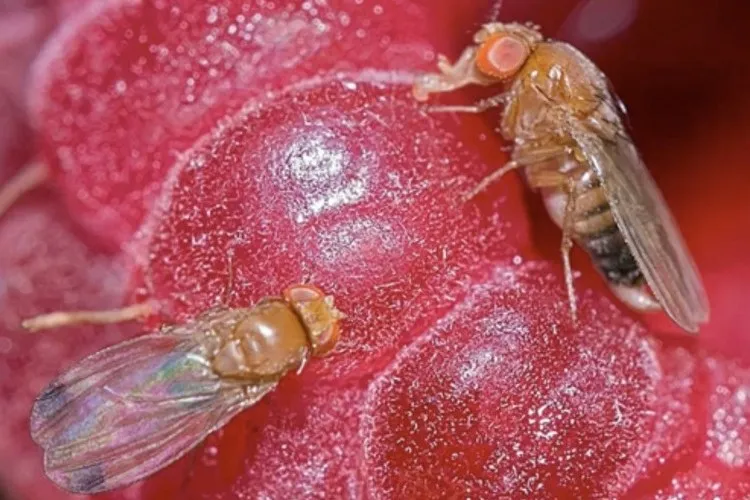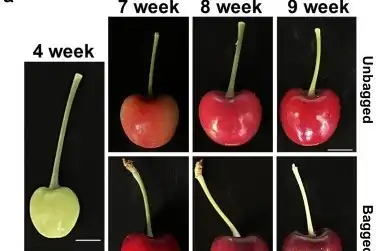Research into the nutritional needs of fruit crops has recently focused on possible responses to the emergence of nutritional deficiencies due in part to climate change. Nutrients are essential chemical elements that regulate numerous physiological processes and facilitate plant growth and metabolism.
In the sweet cherry tree, it is necessary to provide a varied and balanced amount of nutrients, which, together with adequate soil fertility, are essential for high yields. In addition to improving fruit quality and yield, the resistance of sweet cherry trees to numerous diseases and physiological disorders is increased by the implementation of adequate fertilisation.
In fruit trees, the nutritional status of the plants plays a key role in determining their fruiting capacity, particularly macronutrients such as magnesium (Mg) and potassium (K). The application of magnesium has been linked to an increase in agronomic efficiency and crop yield.
Indeed, it has a crucial function as an enzyme cofactor for various biochemical processes and as a component of chlorophyll. Mg is also essential for safeguarding plants from a range of environmental stresses, including high light radiation, aluminium toxicity, soil acidification and heat. In contrast, potassium is a critical nutrient for plant growth and is crucial for high yields in agriculture.
K is also a critical nutrient for regulating fruit quality, as it has a substantial impact on quality characteristics such as size, appearance, colour, soluble solids, acidity and vitamin content. The focus of the study conducted at the Universidad Politécnica de Cartagena (Spain) and the University of Trás-os-Montes e Alto Douro (Portugal) was to evaluate the effects of foliar application of magnesium (Mg) and potassium (K) on fruit quality parameters.
 Immagine 1: Gli apporti di magnesio e potassio hanno migliorato calibro e attributi qualitativi delle ciliegie.
Immagine 1: Gli apporti di magnesio e potassio hanno migliorato calibro e attributi qualitativi delle ciliegie.
In a three-year study that ranged from 2019 to 2021, sweet cherry trees cv. ‘Burlat’ were administered different concentrations of Mg (250 g hL-1 and 125 g hL-1) and K (100 g hL-1 and 50 g hL-1), then compared to a control treatment. Fruits from each treatment were harvested during the commercial ripening stage for a comprehensive evaluation, which included biometric and colour parameters, fruit firmness, sensory profile and nutrient content analysis.
Results suggested that potassium treatments, specifically K100, resulted in larger and more compact fruit, while magnesium treatments, specifically Mg250 and Mg125, produced sweeter and more vibrantly coloured cherries. However, the importance of incorporating climatic factors into orchard management practices is underlined by the substantial impact of environmental conditions, particularly temperature and rainfall, on cherry quality parameters.
In any case, magnesium and potassium inputs consistently improved fruit quality attributes despite variations in environmental conditions, underlining their potential to improve sweet cherry production. Furthermore, nutritional analysis showed that potassium-based interventions, particularly K50, substantially increased macronutrient and micronutrient levels in cherry flesh and skin, thus improving the nutritional value of the fruit.
In conclusion, our results underline the importance of precision fruit-growing practices, such as targeted nutrient management, to improve the quality and nutritional content of sweet cherries. This approach not only satisfies consumer preferences, but also contributes to the economic value and overall appreciation of the fruit.
Source: Santos, M.; Pereira, S.; Ferreira, H.; Sousa, J.R.; Vilela, A.; Ribeiro, C.; Raimundo, F.; Egea-Cortines, M.; Matos, M.; Gonçalves, B. Optimizing Sweet Cherry Attributes through Magnesium and Potassium Fertilization. Horticulturae 2024, 10, 881. https://doi.org/10.3390/horticulturae10080881.
Image: SL Fruit Service
Melissa Venturi
University of Bologna (IT)
Cherry Times - All rights reserved











